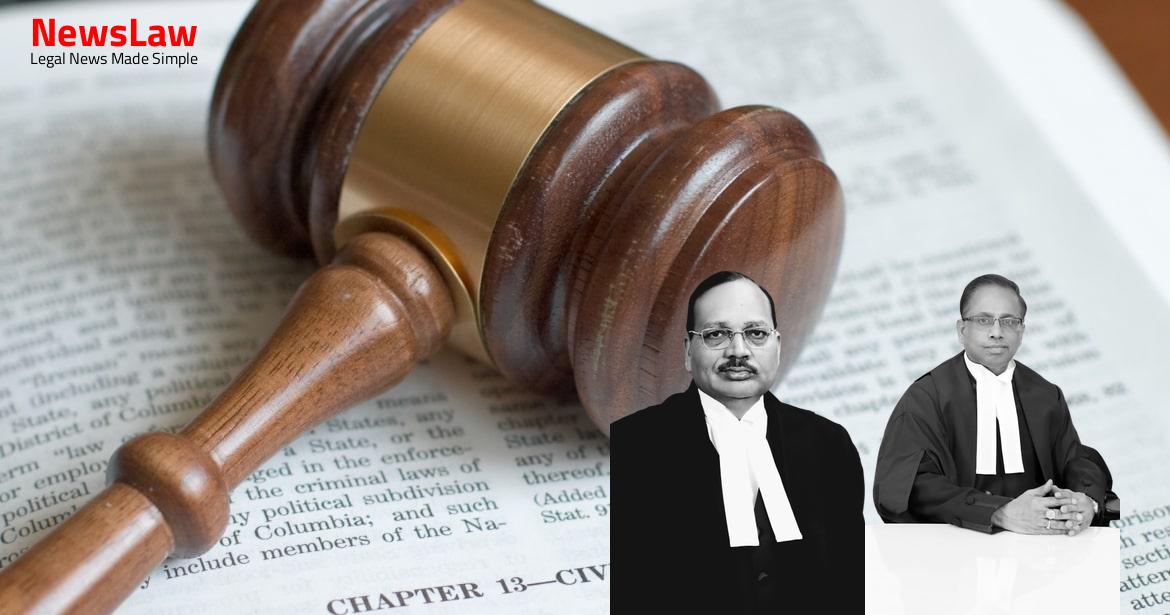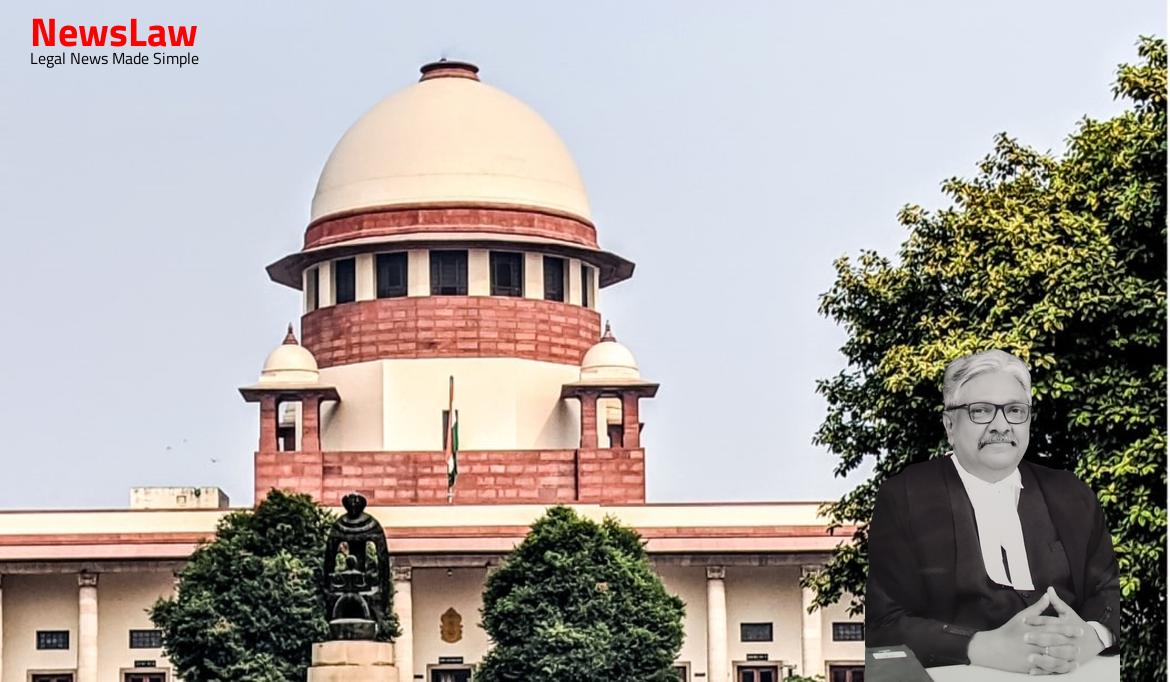Explore the groundbreaking judgment delivered by the Supreme Court of India in the case of Amanatullah Khan vs. Commissioner of Police, Delhi. Delve into the legal intricacies of the appellant’s quest to quash a ‘History Sheet’ and the proposal to declare him as ‘Bad Character’, and the respondent’s defense. Uncover how the court’s directive not only safeguards individual rights but also addresses biases against socially disadvantaged communities, setting a precedent for equitable justice.
Facts
- The appellant contended that the information in the ‘History Sheet’ and the proposal to declare him as ‘Bad Character’ are unjustified and unsubstantiated.
- The Single Judge of the High Court dismissed the appellant’s writ petition seeking to quash the ‘History Sheet’ and the proposal to declare him as ‘Bad Character’.
- The appellant challenged the order of the Single Judge before the Court.
- The Delhi Police appeared through Mr. Sanjay Jain, learned senior counsel.
- The History Sheet contained disturbing contents related to the school-going minor children of the appellant and his wife.
- No adverse material was found against the appellant and his wife for inclusion in the History Sheet.
- The format of history sheeters was prescribed under Rule 23.8 and Rule 23.9 of the Punjab Police Rules 1934 in the NCT of Delhi.
Also Read: State of Kerala vs. Union of India: Fiscal Responsibility Case
Arguments
- Learned senior counsel for the respondents agreed to re-visit archaic rules to protect the dignity, self-respect, and privacy of innocent family members of suspects
- Amended Standing Order No.L&O/54/2022 was presented by Mr. Sanjay Jain, learned senior counsel
Also Read: R.C. Sabharwal vs. Income Tax Department
Analysis
- The amended Standing Order emphasizes the importance of detailing only connections who can provide shelter to a criminal when on the run, including associates in crime, abettors, and receivers.
- Minor relatives should only be included in the History Sheet if there is evidence of them providing shelter to the offender in the past; otherwise, they should not be listed.
- Care should be taken to note the specific nature of each person’s connection and cross-reference with other History Sheets if necessary.
- Additional details like mobile numbers and other available information of associates, relatives, and acquaintances should be collected and documented.
- States and Union Territories other than NCT of Delhi are encouraged to adopt similar measures to prevent mechanical entries in History Sheets based on bias or discrimination.
- Studies suggest biased maintenance of Police Diaries against individuals from marginalized backgrounds, requiring preventive measures from all State Governments.
- The safeguarding of minor children’s identities in History Sheets is emphasized, with strict adherence to data protection laws like not disclosing identities of minors unless they provided shelter to offenders.
- A senior police officer should oversee periodic audits of History Sheets to ensure confidentiality, accuracy, and the deletion of innocent names from the ‘relations and connections’ section.
- Prompt action will be taken against any Delhi Police officer found violating the Standing Order or directions outlined in the judgment.
- Pre-conceived biases and stereotypes must not lead to discriminatory practices or targeting of vulnerable communities, especially minors.
- Human dignity, as enshrined in Article 21 of the Constitution, must be protected by ensuring fair and respectful treatment in all police documentation.
- The periodic audit mechanism, as directed for Delhi, should serve as a tool to review entries for biases and discriminatory practices, as detailed in the amended Standing Order.
- Specific guidelines on recording details in the History Sheet, such as excluding minor relatives without evidence of shelter provision, and collecting relevant contact information, aim to enhance accountability and fair treatment.
- Amended provision mandates adherence to Section 74 of the Juvenile Justice (Care and Protection of Children) Act, 2015
- Prohibition on disclosing the identity of children in conflict with law or in need of care and protection, as well as child victims or witnesses of a crime
- Positive mandamus cannot be issued without hearing the concerned parties.
- Lack of awareness about existing Rules/Policies or Standing Orders in different States/Union Territories.
- Concerned parties have not been given the opportunity to present their side.
Also Read: KNNL vs. Land Owners: Land Acquisition Compensation Dispute
Decision
- Pending applications disposed of.
- Impugned judgment of the High Court dated 19.01.2023 modified.
- Instant criminal appeal disposed of accordingly.
- Copies of the judgment to be forwarded to Chief Secretary and Director General of Police of all States and Union Territories.
- States/Union Territories directed to consider and comply with the judgment within six months.
- States/Union Territories to revisit their policy regime and consider amendments similar to the ‘Delhi Model’.
Case Title: AMANATULLAH KHAN Vs. THE COMMISSIONER OF POLICE, DELHI (2024 INSC 383)
Case Number: Crl.A. No.-002349-002349 – 2024



